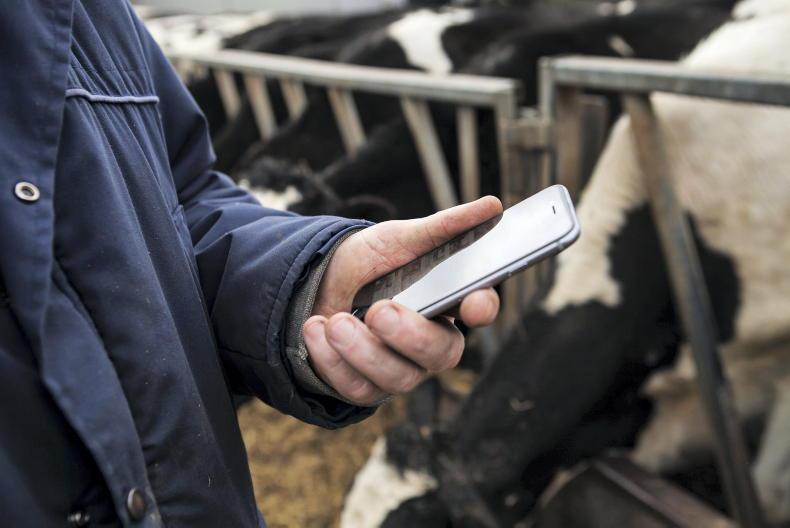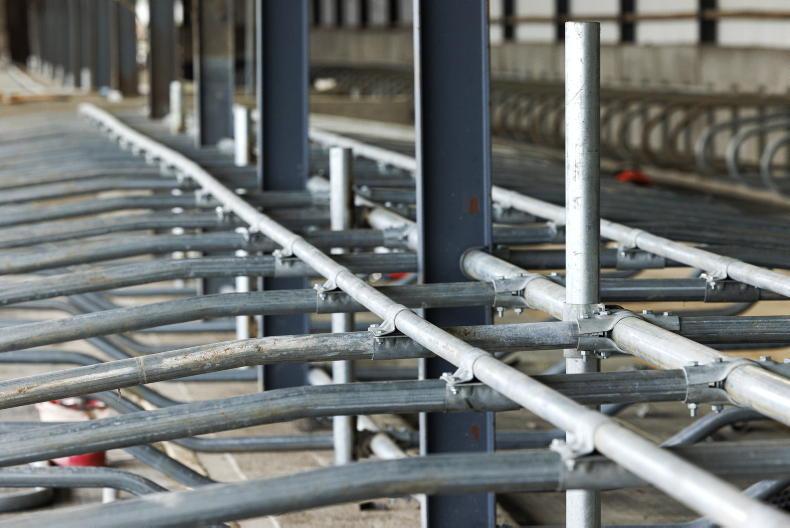Since 2010, over half of the farmers who were denied a loan and who subsequently contacted the Credit Review Office had a loan recommended for approval by reviewers.
The office reviews applications refused by banks and gives an independent opinion to both parties after looking at the individual situation of the borrower. The bank must support this opinion or explain to the borrower why it chose not to.
The Credit Review Office cannot compel a bank to lend, but banks have agreed to put a loan on the table in over 80% of the farmer cases it recommended for approval. Another cohort of cases were withdrawn by farmers themselves, perhaps after finding an alternative lender.
Farm loan applications right up to the value of €3m can be reviewed, but the average loan comes in at €136,000.
Overdrafts right down to €1,000 can be handled by reviewers.
The conditions for opening a review are strictly time bound – a refusal must be raised within 28 days of the lender’s decision. Farmers should look for an internal review of their application by the bank itself.

The Credit Review Office maintains that you should always could come forward with any relevant information that can help you make your case, even if the bank doesn't ask for it.
This internal review will see a “second set of eyes” within the bank looking at the business case for the loan.
Only formal credit applications are reviewed by the office too, meaning that if you feel a loan application won’t make it across the line after a chat with your bank manager, you will still have to submit an application to the bank.
However, if your loan application does not meet these conditions, the office can still provide general and standardised information through its helpline service, instead of opening an official review.
Restructuring requests may also be made by a farmer or their lender if they are already repaying existing loans, maybe to a number of different credit providers, when looking for a new loan.
A bank might want an overdraft repaid in full before offering a new stock loan or finance for farm investment and the Credit Review Office itself may not always recommend that the loan applied for is the one that should be lent out, if at all.
Nothing to lose
Appealing a loan or overdraft decision after refusal will not impact any of your existing loans. In fact, head of the Credit Review Office Catherine Collins maintains that opening up lines of communication with your lender after a refusal can only bring benefits.
“We would encourage people to appeal and to be aware that they can appeal. It actually helps communication between the bank and the borrower,” Collins told the Irish Farmers Journal.
“There are a number of blemishes or mistakes that can show up on your credit record that will lead to a very swift ‘no’.

Keep the lines of communication open with your lender, even after an initial refusal. / Philip Doyle
“That’s where checking your record and providing your bank with additional information comes in.
“You explain your particular set of circumstances and can give any additional relevant information to help make your case,” she said. The dreaded ‘no’ may not even be the answer from a bank agri specialist, Collins continued.
“With the process going towards automation, there’s none of the additional information that there would be in a more traditional relationship between a farmer and their bank manager,” she stated.
“In general, automation speeds up the process and when it works, it works very good.”
The official also commented that, as a group, farmers tend to withdraw more from prolonged loan applications and get credit elsewhere, if they feel this will speed up their investment process.
For example, a farmer may put a deposit down on machinery before credit is granted and opt for a quick-answer asset finance service if a loan application with their bank takes too long.
Avoiding tripwires
Answer bank
information requests
Some of the cases dealt with by the Credit Review Office have shown that farmers were refused credit for failing to provide additional information that was sought by their lender. Farmers could be unaware that these requests were made.
Following up with your bank on the correspondence you receive can help avoid these roadblocks.
Check your credit record
Many farmers do not know their current credit record on the Central Credit Register (CCR), established by the Central Bank.
Your credit record could contain “blemishes” that are not fully reflective of your current or past financial standing.
An unpaid charge of €10 on a now-cancelled credit card could negatively impact your rating, despite holding a healthy set of farm accounts, as could a bounced direct debit or two a few years before your loan application.
Get approved first
Given the potential for loan applications and any subsequent appeals to run over a protracted timeframe, it is recommended that farmers secure credit before commencing works or putting down deposits.
If denied a loan by one bank, you can always try another bank or, for some investments, go down the road of asset financing or your local Credit Union.
When the banks changed their minds
Timing your account
top-ups
One case dealt with by the Credit Review Office concerned a farmer who had had an application for a bank overdraft of an amount less than €10,000 refused by their bank.
The farmer had a set of generally healthy accounts, but the timing of their regular top-up transfers from a business account to their farm account had resulted in a few direct debits bouncing over time.

Banks take about four out of every five Credit Review Office recommended approvals on board. \ Donal O'Leary
They started transferring these top-up payments earlier – before direct debits and other regular payments came due – and were granted access to an overdraft facility with their lender.
More information gets
a loan over the line
Another case was brought by a farmer who had started work on a shed themselves, before securing the credit amount of under €50,000 needed to complete the project.
They had a loan application denied by their bank at first, but this decision was overturned after they provided additional information to their bank.
The lender had initially been provided with an old set of accounts without any information on the increase in farm financial output expected after the shed was complete and filled with cattle.
The farmer projected that the new shed would allow for an additional 20 cattle to be finished each year, increasing their repayment capacity on the farm’s previous capacity.
The loan was granted after this additional information was passed on.
Explaining a missed
payment
Another farmer who had previously been a customer of Ulster Bank had their accounts transferred to a new bank.
They were provided with access to an overdraft facility when an Ulster Bank customer, but were initially refused this access with their new lender.
After giving the bank an explanation of how a technical issue with one repayment on one loan some years previous had impacted their credit rating, the farmer got their application over the line.
Since 2010, over half of the farmers who were denied a loan and who subsequently contacted the Credit Review Office had a loan recommended for approval by reviewers.
The office reviews applications refused by banks and gives an independent opinion to both parties after looking at the individual situation of the borrower. The bank must support this opinion or explain to the borrower why it chose not to.
The Credit Review Office cannot compel a bank to lend, but banks have agreed to put a loan on the table in over 80% of the farmer cases it recommended for approval. Another cohort of cases were withdrawn by farmers themselves, perhaps after finding an alternative lender.
Farm loan applications right up to the value of €3m can be reviewed, but the average loan comes in at €136,000.
Overdrafts right down to €1,000 can be handled by reviewers.
The conditions for opening a review are strictly time bound – a refusal must be raised within 28 days of the lender’s decision. Farmers should look for an internal review of their application by the bank itself.

The Credit Review Office maintains that you should always could come forward with any relevant information that can help you make your case, even if the bank doesn't ask for it.
This internal review will see a “second set of eyes” within the bank looking at the business case for the loan.
Only formal credit applications are reviewed by the office too, meaning that if you feel a loan application won’t make it across the line after a chat with your bank manager, you will still have to submit an application to the bank.
However, if your loan application does not meet these conditions, the office can still provide general and standardised information through its helpline service, instead of opening an official review.
Restructuring requests may also be made by a farmer or their lender if they are already repaying existing loans, maybe to a number of different credit providers, when looking for a new loan.
A bank might want an overdraft repaid in full before offering a new stock loan or finance for farm investment and the Credit Review Office itself may not always recommend that the loan applied for is the one that should be lent out, if at all.
Nothing to lose
Appealing a loan or overdraft decision after refusal will not impact any of your existing loans. In fact, head of the Credit Review Office Catherine Collins maintains that opening up lines of communication with your lender after a refusal can only bring benefits.
“We would encourage people to appeal and to be aware that they can appeal. It actually helps communication between the bank and the borrower,” Collins told the Irish Farmers Journal.
“There are a number of blemishes or mistakes that can show up on your credit record that will lead to a very swift ‘no’.

Keep the lines of communication open with your lender, even after an initial refusal. / Philip Doyle
“That’s where checking your record and providing your bank with additional information comes in.
“You explain your particular set of circumstances and can give any additional relevant information to help make your case,” she said. The dreaded ‘no’ may not even be the answer from a bank agri specialist, Collins continued.
“With the process going towards automation, there’s none of the additional information that there would be in a more traditional relationship between a farmer and their bank manager,” she stated.
“In general, automation speeds up the process and when it works, it works very good.”
The official also commented that, as a group, farmers tend to withdraw more from prolonged loan applications and get credit elsewhere, if they feel this will speed up their investment process.
For example, a farmer may put a deposit down on machinery before credit is granted and opt for a quick-answer asset finance service if a loan application with their bank takes too long.
Avoiding tripwires
Answer bank
information requests
Some of the cases dealt with by the Credit Review Office have shown that farmers were refused credit for failing to provide additional information that was sought by their lender. Farmers could be unaware that these requests were made.
Following up with your bank on the correspondence you receive can help avoid these roadblocks.
Check your credit record
Many farmers do not know their current credit record on the Central Credit Register (CCR), established by the Central Bank.
Your credit record could contain “blemishes” that are not fully reflective of your current or past financial standing.
An unpaid charge of €10 on a now-cancelled credit card could negatively impact your rating, despite holding a healthy set of farm accounts, as could a bounced direct debit or two a few years before your loan application.
Get approved first
Given the potential for loan applications and any subsequent appeals to run over a protracted timeframe, it is recommended that farmers secure credit before commencing works or putting down deposits.
If denied a loan by one bank, you can always try another bank or, for some investments, go down the road of asset financing or your local Credit Union.
When the banks changed their minds
Timing your account
top-ups
One case dealt with by the Credit Review Office concerned a farmer who had had an application for a bank overdraft of an amount less than €10,000 refused by their bank.
The farmer had a set of generally healthy accounts, but the timing of their regular top-up transfers from a business account to their farm account had resulted in a few direct debits bouncing over time.

Banks take about four out of every five Credit Review Office recommended approvals on board. \ Donal O'Leary
They started transferring these top-up payments earlier – before direct debits and other regular payments came due – and were granted access to an overdraft facility with their lender.
More information gets
a loan over the line
Another case was brought by a farmer who had started work on a shed themselves, before securing the credit amount of under €50,000 needed to complete the project.
They had a loan application denied by their bank at first, but this decision was overturned after they provided additional information to their bank.
The lender had initially been provided with an old set of accounts without any information on the increase in farm financial output expected after the shed was complete and filled with cattle.
The farmer projected that the new shed would allow for an additional 20 cattle to be finished each year, increasing their repayment capacity on the farm’s previous capacity.
The loan was granted after this additional information was passed on.
Explaining a missed
payment
Another farmer who had previously been a customer of Ulster Bank had their accounts transferred to a new bank.
They were provided with access to an overdraft facility when an Ulster Bank customer, but were initially refused this access with their new lender.
After giving the bank an explanation of how a technical issue with one repayment on one loan some years previous had impacted their credit rating, the farmer got their application over the line.









 This is a subscriber-only article
This is a subscriber-only article









SHARING OPTIONS: